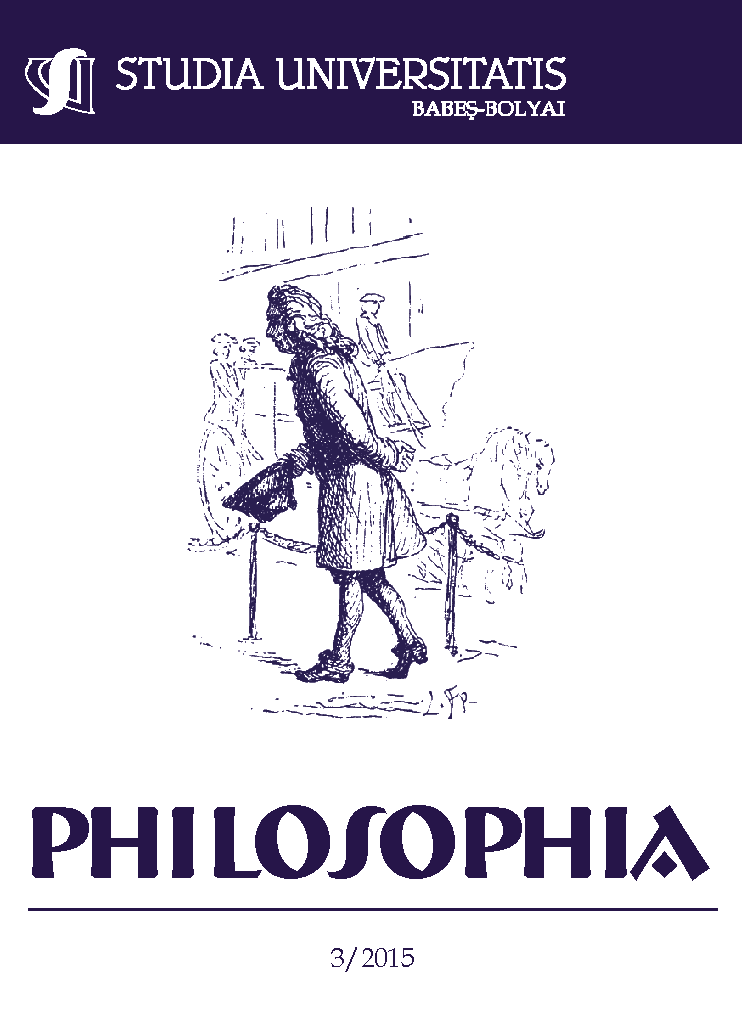THE FUTURE OF ACCOUNTING’S PAST: A REFLECTION ON ITS CONTEMPORARY RELEVANCE
Keywords:
Accounting history, contemporary business, double entry accounting, bookkeeping, record keeping.Abstract
Contemporary corporate history demonstrates that, though accounting is acknowledged as the language of business, there are more and more cases where this language becomes an incomprehensible foreign language. The objective of accounting as promulgated by accounting regulators is characterized by large volumes of complex principles, which none but the most specialised accounting professionals can interpret. This very often results in many classes of accounting information users not being able to properly understand the message being conveyed. This paper aims to reflect on the primary objective of accounting by considering its historic evolution from its ancient roots as a record keeping function, through its bookkeeping phases up to when it actually began to resemble accounting as we know it in the contemporary business environment. Throughout this reflection, consideration is given to its intended purpose for the specific time period under consideration. The paper concludes that even though accounting has evolved much in its perceived objectives, the complexity of the contemporary business environment contributed to complex accounting principles and practices. Nonetheless, the key purpose of accounting should never be lost, that being that it is the language of business and as such it must be understandable to business stakeholders.References
Alexander, J.R. 2002. History of Accounting. Available at: http://www.suu.edu/scps/courses/ba1010/ba1010_lesson5.html. Date of access: 28 June 2015.
Arlinghaus, F. 2004. Bookkeeping, Double-entry Bookkeeping. Available at: http://www.franzarlinghaus.de/Arlinghaus%20ArtBookkeeping.pdf. Date of access: 3 March 2015.
Baskerville, R.F., and Cordery, C.J. 2006. Small GAAP: a large jump for the IASB. Paper presented at the Tenth Annual Conference for Financial Reporting and Business Communication, Cardiff Business School, Cardiff.
Buffet, M. and Clark, D. 2008. Warren Buffett and the Interpretation of Financial Statements, The search for the Company with a Durable Competitive Advantage. New York: Scriber.
Buys, P.W. 2011. Legitimacy lost: Accounting's predicament. Philosophia, LVI (1): 3-14.
Buys, P.W. and Cronje, C.J. 2013.A reflection on historical Biblical principles in support of ethical stewardship. Philosophia, LVIII (3):229-240.
Chambers, R.J. 1999. The Poverty of Accounting Discourse. Abacus, 35(3):241-251.
Edwards, J.D. 1960. Early Bookkeeping and Its Development into Accounting. The Business History Review, 34(4):446-458.
Edwards, J.R. 1989. A history of financial accounting. New York: Routledge.
Edwards, J.R. 1996. Financial Accounting Practice (1600–1970): Continuity and Change. In Lee, T.A.; Bishop, A. and Parker, R.H. Accounting History from the Renaissance to the Present, New York: Garland Publishing.
Fogo, J.R. 1905. History of Bookkeeping. In A History of Accounting and Accountants, ed. Brown, R. Washington, D.C.: Beard Books.
Funnell, W. 1996. Preserving History in Accounting: Seeking Common Ground Between "New" and "Old" Accounting History. Accounting, Auditing and Accountability Journal, 9(4): 38 - 64.
Gleeson-White, J. 2012. Luca Pacioli’s Double Entry and the Birth of Financial Management. Available at: http://www.fm-magazine.com/feature/depth/luca-pacioli%E2%80%99s-double- entry-and-birth-financial-management#. Date of access: 2 June 2015.
Goldberg, L. 1974. The Future of the Past in Accounting. Accountants Magazine, October: 405 - 410.
Gomes, D. 2008. The Interplay of Conceptions of Accounting and Schools of Thought in Accounting History. Accounting History, 13(4): 479-509
Gurskaya, M.M., Kuter, M.I., Deliboltoayn, A.E. and Zinchenko, E.S. The ledgers of Datini Company in Barcelona dated 1397-1399: The transition from double-entry system to double-entry bookkeeping. Available at: http://www.ncl.ac.uk/nubs/about/ events/worldcongress/pdf/f_bookkeeping2.pdf. Date of access: 16 August 2014.
Hopwood, A. G. 1987. The Archaeology of Accounting Systems. Accounting, Organizations and Society, 207 - 234.
Hopwood, A. G. and Johnson, H.T. 1986. Accounting History's Claim to Legitimacy. The International Journal of Accounting, Spring: 37 - 46.
Hucley, A.L. 1959. Collected Essays. Available at: http://www.idph.com.br/conteudos/ ebooks/BraveNewWorld.pdf. Date of access: 17 August 2015.
Johnston, H.T. and Kaplan, R.S. 1987. Relevance Lost. Boston: Harvard Business School Press.
Lauwers, L. and Willekens, M. 1994. Five Hundred Years of Bookkeeping a Portrait of Luca Pacioli. Tijdschrift voor Econornie en Management, 39(3): 289 – 304.
Mattessich, R. 1989. Accounting and the Input-Output Principle in the Prehistoric and Ancient World. Abacus, 25(2): 78 - 84.
McCarthy, P., Sangster, A. and Stoner, G. 2008. Pacioli and Humanism: Pitching the text in Summa Arithmetica. Accounting History, 13(2):183-206
Munger, C. 1994. A Lesson on Elementary, Worldly Wisdom As It Relates To Investment Management and Business. Available at: http://www.ritholtz.com/blog/2012/02/a-lesson-on-elementary-worldly-wisdom-as-it-relates-to-investment-management-business. Date of access: 15 August 2012.
Parker, R. H. 1977. Research Needs in Accounting History. The Accounting Historians Journal, 4(2): 1 – 28. Fall.
Probert, S. 1999. Towards a critical framework of IS research. Association for information systems. (AMCIS 1999 proceedings. Paper 58. http://aisle.aisnet.org/amcis1999/58).
Salisu, A. 2014. Accounting in Pre-Pacioli Era: Genesis and Impact on the Development of Accounting Profession in Nigeria. Available at: http://www.studymode.com/essays/Accounting-In-Pre-Pacioli-Era-Genesis-And-59864721.html. Date of access: 3 March 2015.
Sangster, A. 2010.Using Accounting History and Luca Pacioli to Put Relevance Back into the Teaching of Double Entry. Accounting, Business and Financial History, 20(1): 23 - 39.
Schutte, D.P. and Buys, P.W. 2011. A comparative evaluation of South African SME financial statements against IFRS requirements. Journal of Accounting and Taxation, 3(1): 8-22.
Sylph, J. 2007. Accountancy Regulation in the Mediterranean Region. (In Conference organized by Federation des Experts Comptables Mediterraneens held on 19 November 2007. Athens, Greece.)
Ten Have, O. 1976. The History of Accountancy. California: Bay Books.
Thompson, G. 2003. A historical account of the roles institutions played in formulating, fostering and furthering accounting knowledge. (In BH and Europe conference held on 5 – 6 September 2003.)
Von Goethe, J.W. 1795. Wilhelm Meister’s Apprenticeship. Available at: http://www.bartleby.com/314/110.html. Date of access: 19 September 2015.
Warsono-Bin-Hardono, S. 2013. Solving the mystery of double entry bookkeeping. Available at: http://ssrn.com/abstract=2339864. Date of access: 11 March 2015.
Whittow, M. 2010. The Middle Byzantine Economy (600 – 1204). In The Cambridge History of the Byzantine Empire c. 500 – 1492, ed. by J. Shepard, 465 – 492. Cambridge: Cambridge University Press.
Yamey, B.S. 1994. Accounting in History. The European Accounting Review, 3(2): 375-380.
Downloads
Published
How to Cite
Issue
Section
License
Copyright (c) 2015 Studia Universitatis Babeș-Bolyai Philosophia

This work is licensed under a Creative Commons Attribution-NonCommercial-NoDerivatives 4.0 International License.





